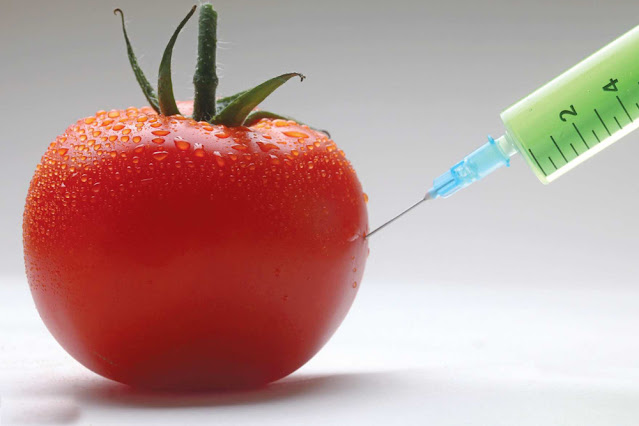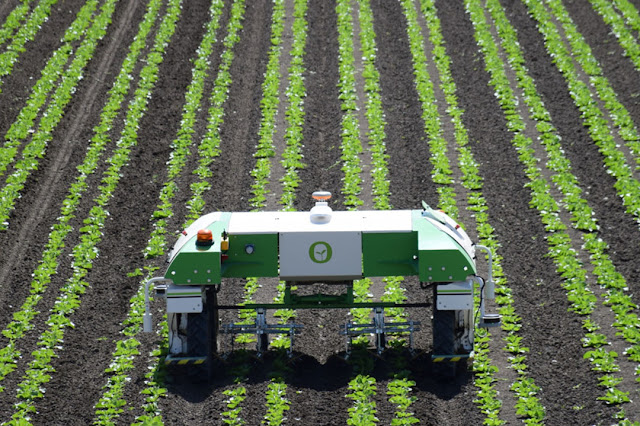Genetically Modified Crops: Transforming Agriculture for a Sustainable Future
 |
| Genetically Modified Crops |
A genetically modified crop is one that has undergone genetic engineering to change its DNA and is employed in agriculture (GM crop). Plant genomes can be altered physically or by employing Agrobacterium to transfer sequences found in T-DNA binary vectors. Usually, the intention is to confer on the plant a novel trait that is absent from the normal range of the species. Food crops exhibit various traits like as resistance to pests, diseases, environmental conditions, reduced spoilage, ability to withstand chemical treatments (e.g., herbicide resistance), and improved nutritional value.
Genetically modified (GM) crops have been at the forefront of agricultural innovation, offering solutions to critical issues such as food security, environmental sustainability, and crop resilience. By altering the genetic makeup of crops to enhance desired traits, genetic modification has revolutionized how we grow food.
Benefits of
Genetically Modified Crops
The adoption of Genetically
Modified Crops has brought numerous benefits to agriculture and society:
Increased
Crop Yields: GM crops are designed to be more resistant to pests,
diseases, and environmental conditions, leading to higher yields. This is
crucial for meeting the food demands of a growing global population.
Reduced
Pesticide Use: Crops engineered to be pest-resistant, such as Bt corn and
cotton, produce their own insecticidal proteins, reducing the need for chemical
pesticides. This not only lowers production costs but also minimizes
environmental impact and health risks associated with pesticide use.
Herbicide
Tolerance: Herbicide-tolerant crops, like glyphosate-resistant
soybeans, allow farmers to use herbicides more effectively to control weeds
without harming the crop. This leads to more efficient weed management and
reduced soil erosion from mechanical weed control.
Enhanced
Nutritional Content: Biofortified crops, such as Golden Rice, are
engineered to contain higher levels of essential nutrients like vitamin A.
These crops have the potential to combat malnutrition and improve public
health, particularly in developing countries.
Environmental
Sustainability: GM crops that are tolerant to abiotic stresses, such as
drought or salinity, can thrive in challenging conditions. This reduces the
need for water and other inputs, promoting more sustainable farming practices.
Challenges
and Controversies
Despite their benefits, genetically modified crops are not
without challenges and controversies:
Safety
Concerns: There are ongoing debates about the safety of GM crops for
human consumption and the environment. Critics argue that the long-term effects
are not fully understood and that there may be unintended consequences, such as
the development of new allergens or the transfer of antibiotic resistance
genes.
Environmental
Impact: The potential for GM crops to crossbreed with wild
relatives raises concerns about gene flow and the creation of
"superweeds" that are resistant to herbicides. This could complicate
weed management and harm ecosystems.
Socioeconomic
Issues: The dominance of a few large companies in the GM crop
industry raises concerns about market consolidation and the control of
agricultural biotechnology. This can limit the choices available to farmers and
increase their dependence on proprietary seeds and associated technologies.
Public
Perception and Acceptance: Public skepticism and opposition to GM crops remain
significant barriers to their widespread adoption. Misconceptions and lack of
understanding about genetic modification often fuel these sentiments, making it
essential to engage in transparent communication and education.
Future
Prospects
The future of genetically modified crops looks promising,
with several trends likely to shape their development and adoption:
Advancements
in Gene Editing: Technologies like CRISPR-Cas9 have made gene editing
more precise and efficient, opening up new possibilities for crop improvement.
These advancements will enable the development of crops with even more
beneficial traits, such as improved nutritional content and better climate
resilience.
Integration
with Other Technologies: The combination of GM crops with other agricultural
technologies, such as precision farming and digital agriculture, can further
enhance productivity and sustainability. These integrated approaches will
optimize resource use and reduce the environmental footprint of farming.
Focus on
Sustainability: As climate change and resource scarcity become more
pressing issues, the development of GM crops that can withstand extreme weather
conditions and utilize resources more efficiently will be crucial. These crops
will play a vital role in promoting sustainable agricultural practices and
ensuring food security.
Regulatory
and Policy Frameworks: Robust regulatory frameworks and policies that
ensure the safety and efficacy of GM crops will be essential for gaining public
trust and acceptance. Clear guidelines and transparent evaluation processes
will help address safety concerns and promote responsible use of genetic
modification.
Genetically modified crops have the potential to transform
agriculture by addressing some of the most pressing challenges facing food
production today. The benefits of increased yields, reduced pesticide use,
enhanced nutritional content, and environmental sustainability make them a
powerful tool for ensuring food security and promoting sustainable farming
practices. However, addressing the safety concerns, environmental impacts,
socioeconomic issues, and public perception challenges will be crucial for
realizing the full potential of GM crops. As technology continues to advance
and regulatory frameworks evolve, genetically modified crops will play an
increasingly important role in shaping the future of global agriculture.
Get more insights on Genetically
Modified Crops



Comments
Post a Comment